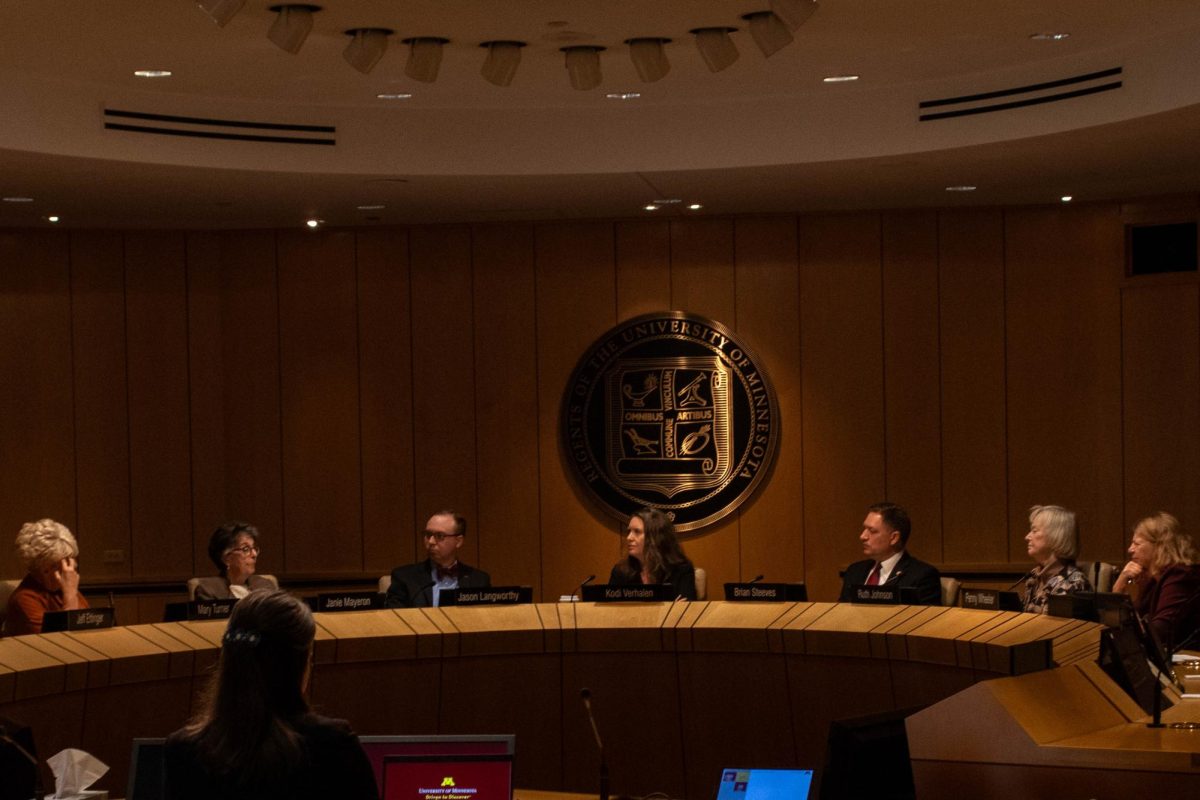As the University of Minnesota’s PEAK (Positioned for Excellence, Alignment and Knowledge) Initiative finishes phase one, some employees are still unsure about whether they will have a job once the initiative is finished.
The PEAK Initiative began its assessment phase in 2021 and is working towards improving the efficiency of services across the University system, according to its website.
The changes PEAK is seeking involve the consolidation and changing of roles within the offices of finance, human resources, information technology, and marketing and communications.
Whitney Taha Frakes is the chair of the Academic Professionals and Administrative (P&A) Consultative Committee, a group of professional and administrative University system employees.
Academic professionals are employees who specialize in a particular field or academic discipline and engage in different functions across the campus, according to the Board of Regents’ definitions of employee groups. Administrative employees are responsible for policy development and execution as well as supervising and coordinating University activities.
Frakes said PEAK has compounded the uncertainty among employees lingering from the COVID-19 pandemic. One concern Frakes said she hears often is whether staff will have their jobs by the end of PEAK because of how their workloads may change.
Frakes added that PEAK has no plans to eliminate anyone’s job and, so far, has added jobs. Since PEAK is only closing the first of its four phases, many employees are still unsure of how their work will change moving forward.
“That’s where it gets a little challenging, and a little bit more anxiety-provoking for individuals,” Frakes said.
According to its website, PEAK is organized into four phases of implementation, each affecting a different area of the University system.
Kit Breshears, chair-elect of the P&A Consultative Committee, said employees across all University’s campuses are uncomfortable with not knowing what PEAK entails for their future.
Communication between the PEAK office and University employees was minimal when PEAK first began, leading to a lot of uncertainty among employees, according to Breshears. He added that communication has improved since, but the feeling is still there.
“If nobody is being told really explicitly that nobody is going to lose their jobs, then of course they’re going to panic,” Breshears said. “This is something that the PEAK Office is going to have to really build a lot of bridges with.”
Elizabeth Davis, chair of the Senate Committee on Finance and Planning, said the University does not want to drive employees out.
“Part of the problem is that we have been losing staff generally,” Davis said. “A lot of people are overworked and under-resourced, but we don’t want to make that any worse.”
According to Davis, the reasons for staff leaving the University has been the shrinking labor market and lingering effects of COVID-19.
“With PEAK happening at the same time, it’s kind of easy to blame PEAK,” Davis said. “It’s hard to know that that’s really the cause.”
Davis said the University opened up new PEAK jobs in offices, like HR or finance, which are offered to employees. Some have moved voluntarily into these new positions and others have chosen to stay in their current roles even though they might be moved.
“Given how short-staffed everyone is, I don’t think there’s going to be any shortage of work,” Davis said. “For the person, they might feel worried that their position will be eliminated. But that’s not the goal.”Phase 1 of PEAK runs through the 2023-2024 fiscal year and includes the other system campuses, according to the PEAK webpage. Phase 2 begins the next fiscal year and will affect the College of Liberal Arts, the College of Food, Agriculture, and Natural Resource Sciences as well as a number of other offices.















Bonnie Kloos
Feb 27, 2024 at 3:56 pm
I personally have not had a good experience with PEAK and it’s implementation. I worry that by hiring a new layer of middle management to “create efficiencies” the University is again becoming abnormally top heavy and less efficient. Thank you for reporting on this topic. It seems to be a thorn in a lot of our sides.
Ruth Shaw
Feb 27, 2024 at 12:00 pm
Yes, please do keep covering this issue. It would be good for you to report on how egregiously understaffed academic units are, and how much wore that problem seems likely to get.
Why PEAK?
Feb 27, 2024 at 9:53 am
I hope this is the first of many informative articles about PEAK! I’m curious about where PEAK has created jobs — I suspect the people who’ve been hired to work in the PEAK office and implement PEAK against the wishes of most employees is the answer. Thank you to the author and please keep writing.